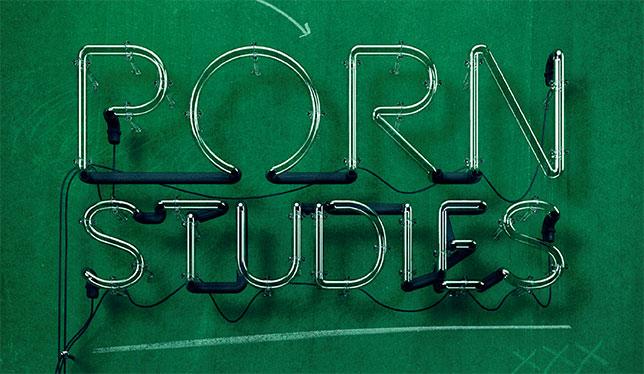
The academic study of porn
Taking an analytical eye to porn is not new. When feature-length porn films began playing in movie theaters in the 1970s, some feminist scholars and activists reacted with disdain, arguing that porn was inherently objectifying. Others disagreed, leading journalist and activist Ellen Willis to coin the term “pro-sex feminism” in 1981.
Around this time, film scholar Linda Williams wrote the groundbreaking book Hard Core: Power, Pleasure and the Frenzy of the Visible, and Concordia University film studies professor Thomas Waugh started including porn in his classes on sexuality and cinema. The school endorsed his decision, but colleagues often did not.
It’s been 30 years since then, and, as shown by this excellent piece in University Affairs, interest in the study of porn has not waned. In fact, there’s a new academic journal from Routledge called Porn Studies, created specifically to compile scholarship on the subject. At the helm of the publication is Lynn Comella, associate professor of gender and sexuality studies at the University of Nevada, Las Vegas, who has been teaching about porn since 2001. Only after receiving tenure last July did she dare use the word “porn” in her course title.
What does a class on porn look like? Well, take the aptly-named “Porn Studies,” taught at York University by associate professor of sexuality and gender studies Bobby Noble. It’s held at 8:30 in the morning with the aim of attracting only serious pupils. For the first several weeks of class, students aren’t shown any film clips, photos, or images — instead, they discuss what pornography is and what assumptions are made about it. The first images they see are those of Victorian women from the 1850s.
In later weeks, Noble teaches about more contemporary issues such as queer and feminist porn, and the ways in which modern technology has altered the consumption and perception of the medium. “I was very impressed by their levels of maturity, the levels of sophistication, their poetical analyses,” Noble said about the first time he taught the class. “I could tell that these were questions about sexuality and sexual representation that they wanted to talk about, but haven’t had the space in which to do that.”
Meanwhile, Noble’s colleague at York University Lisa Sloniowski is compiling the Feminist Pornography Archive, which originally existed simply to provide materials for students taking applicable courses. It received a three-year grant from the Social Sciences and Humanities Research Council in 2010, and Sloniowski is now tackling the difficult questions: what is feminist porn, actually? Will the collection reside in the library itself or in a more private location? How will it operate in the digital age?
Ultimately, the study of pornography is similar to studying any artistic medium. Rebecca Sullivan, who teaches an advanced film seminar on pornography at the University of Calgary, explained:
I want to look at this film the same way we’d look at Hitchcock. What’s going on here? What do we learn? How do we embrace or resist it? Let’s move away from the pro- and anti- argument. It’s divisive and counterproductive. And it’s bad scholarship.
Read the whole piece at University Affairs.

